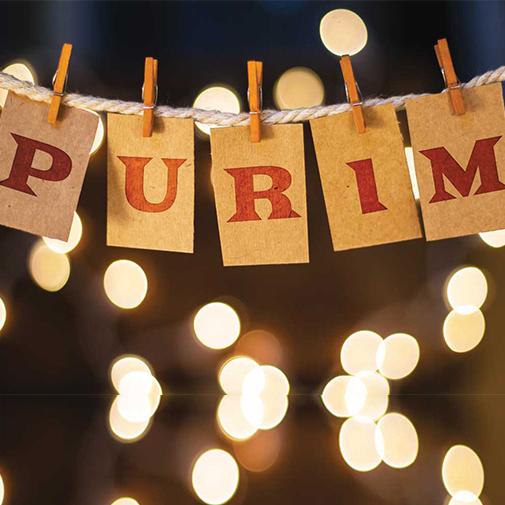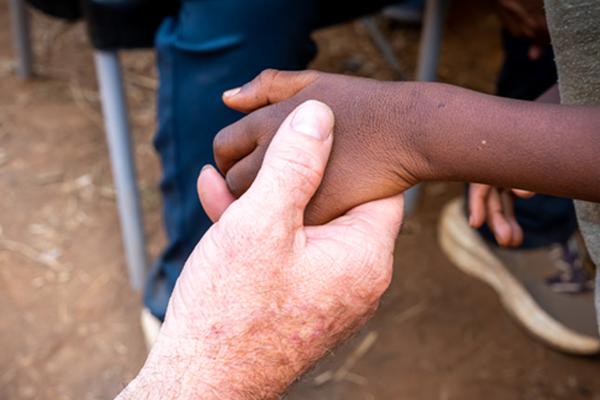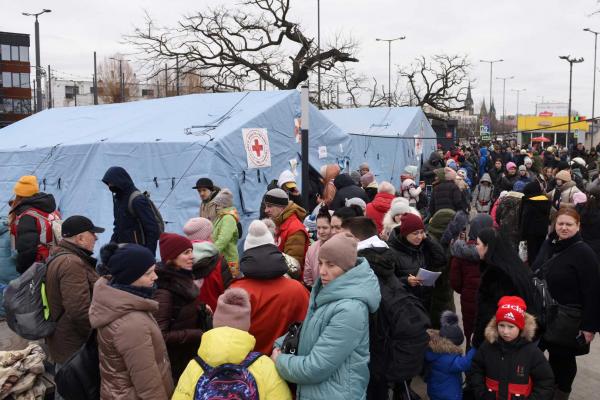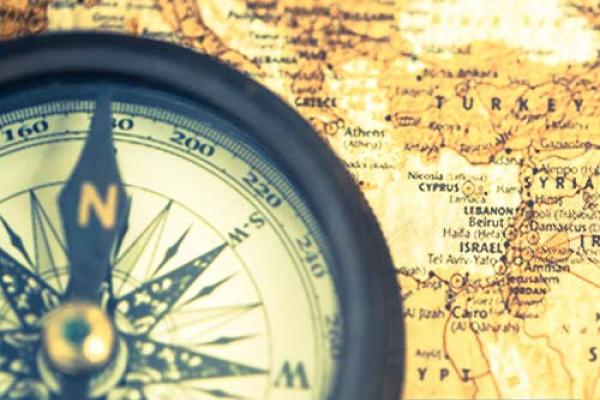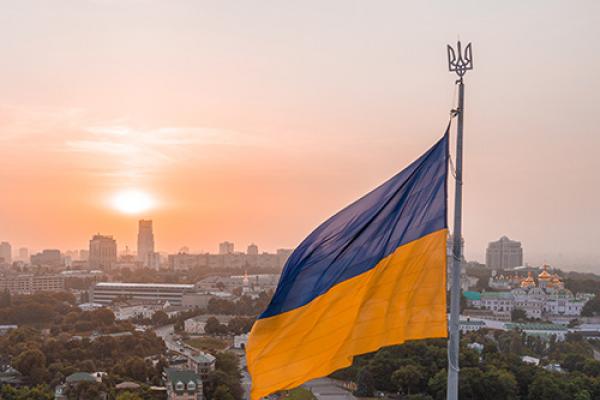By Jonathan Bernis
The early spring festival of Purim, or the “Feast of Lots,” doesn’t usually get the levels of attention in the Messi-anic world as do the big pilgrimage feasts—Pesach (Pass- over), Shavuot (Pentecost), and Sukkot (Tabernacles).
Even so, there are some powerful lessons and deeply meaningful messages embedded in the observance of this neglected Jewish holiday. In fact, as Esther 9:22 reveals (see next page), there were, and are, four specific elements of Purim observance. And one of them is as relevant for Believ-ers today as in the time of Esther.
A LITTLE HISTORY
The events of the book of Esther that form the foundation of the Purim festival transpire in Persia in the fifth century B.C. There, a large community of diaspora Jews made Persia their home following the exile from Judah brought about by the Babylonian conquest.
Only a fragment of the exiled Jews returned to their Judean homeland at the end of that 70-year exile in Babylon. Many chose to remain in exile, settling throughout the Bab- ylonian kingdom. Not long afterward, the Babylonian Empire was supplanted by the Persians, just as Daniel had foretold.
The events of Purim are driven by the same spirit of anti- Semitism we see manifested all around us today.
Esther, a beautiful Jewish girl, becomes a queen of Persia, having great favor with the king. A power-hungry Persian bureaucrat named Haman, animated by the ancient demonic spirit of Jew-hatred, turns his envy of Esther’s uncle and guardian, Mordecai, into a vendetta against the entire Jewish population of Persia.
Ultimately, Esther reveals her Jewish identity and in the presence of the king exposes Haman’s treachery. Haman’s plot to destroy the Jewish People is exposed and he, along with his sons, are taken away and executed.
Mordecai then becomes prime minister and is honored. Esther remains queen. And the Jewish People are spared from extermination.
CELEBRATING GOD’S DELIVERING POWER
For centuries now, the holiday observed on 14th of Adar on the Jewish calendar has been called Purim, or the Feast of Lots, because Haman had cast lots (purim) to determine when he should initiate his genocidal plot against the Jew- ish People.
In other words, Purim is about celebrating God’s faithful, miraculous deliverance of His people from destruction. Of course, that delivering power has been manifested time and again in the centuries since those events.
Throughout history—from Haman of ancient Persia, to Herod, to Hitler, and to Hamas—the enemy has sought to exterminate Jewish People. But time and again, God has intervened to rescue and sustain His People.
More than 24 centuries ago the Jewish People faced a mortal threat from Persia. Significantly, the nation of Israel faces a mortal threat from the same part of the world. Today, the area once known as Persia is called Iran.
God’s power and desire to deliver His People has not diminished. He remains ready and willing to come to the rescue of all those who call upon His name—including you and me. As the psalmist reminds us:
God is for us—a God of deliverance. Adonai my Lord has escapes from death. (Psalm 68:21 TLV)
Purim is a perfect time to take special remembrance of God’s loving desire to deliver. It is also the ideal time to express a heart of gratitude that He sent Yeshua ( Jesus), the Messiah-Deliverer, to make it possible for the entire world to be delivered from the domain of darkness.
While we rejoice over the many ways God has rescued and preserved Israel throughout history, let us also celebrate His rescue, favor, and deliverances in our own lives, espe- cially through Messiah Yeshua!
However, there is another key way we can honor the spirit of Purim today.
HONORING THE SPIRIT OF PURIM
As I mentioned above, the traditional observance of Purim involved four vital elements. These were all embedded in Esther 9:22, cited below.
Those four elements are:
- k'riatmegillah—Listening to the public reading (usually in synagogue) of the book of Esther in the evening, and again the following morning.
- mishloach manot—Sending food gifts to friends.
- matanot la'evyonim—Giving charity to the poor.
- se`udat mitzvah—Eating a festive meal.
These were to be days of feasting, celebration and sending presents of food to one another and giving gifts to the poor.Esther 9:22 TLV
Each of these elements, in one form or another, has a cor- ollary in the new covenant, but none more so than the third one—the sharing with the poor and oppressed.
Yeshua repeatedly emphasized the importance of remem- bering the “the least of these” (see Matthew 25:40). And in Acts 10:4 we see an angel appearing to the Gentile centu- rion, Cornelius, declaring, “Your prayers and tzadakah have gone up as a memorial offering before God” (TLV, emphasis added).
This is precisely why, here at Jewish Voice Ministries, we devote a large portion of our resources and energy to min- istering to the poor and oppressed among the scattered Tribes of Israel.
With the help of friends like you, Jewish Voice delivers both physical and spiritual help to some of the poorest and most neglected Jewish People on Earth. Among the persecuted and ostracized outcasts in Ethiopia, Zimbabwe, and other points of need, we’re extending desperately needed medical care and easing suffering in many other ways.
I would be remiss if I did not remind you that not only at Purim, but throughout the year, you can honor the spirit of the matanot la'evyonim—the extending of help to the poor— through your support of Jewish Voice.
I can assure you, your sacrificial gifts of compassion will rise as a sweet-smelling aroma before God. And you will make possible a living, tangible expression of God’s heart to deliver and rescue those in mortal peril. You will also be a part of introducing Jewish People to the great Deliverer— Yeshua, the Messiah.
Could anything be more appropriate at Purim?



